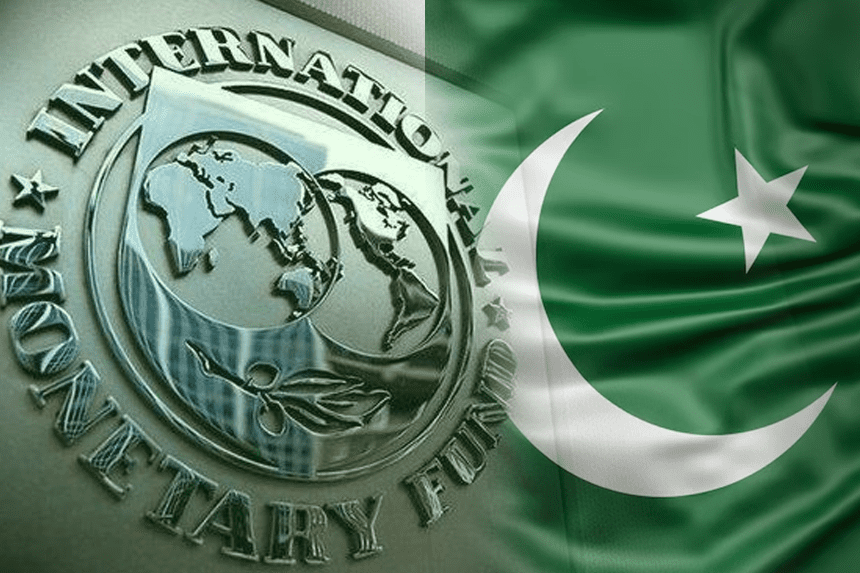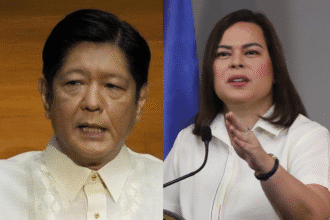The debate on the Pakistan IMF bailout has become a major concern, influencing geopolitics and economic dynamics in South Asia as well as the whole world. This debate centers on the International Monetary Fund’s (IMF) recent approval of a $1 billion bailout to Pakistan, given the continuing conflict with neighboring India. One has to investigate the economic circumstances leading to the bailout, India’s objections, the function of IMF governance, and the consequences for regional stability, and international financial institutions fully grasp this controversy.
- What is the Pakistan IMF Bailout Controversy?
- Why Does India Oppose the Controversy Regarding the Pakistan IMF Bailout?
- How Does IMF Governance Impact the Pakistan IMF Bailout Controversy?
- How Does Support of Conflict-Affected Countries by the IMF Affect This Controversy?
- How does the Financial Action Task Force (FATF) fit into this controversy?
- What consequences, going forward, result from the Pakistan IMF bailout controversy?
What is the Pakistan IMF Bailout Controversy?
The debate over the Pakistan IMF bailout started when the board of the IMF approved the second tranche of a $7 billion loan package to Pakistan citing Islamabad’s shown development in economic recovery and reform. An increasingly important concern for Pakistan, the bailout seeks to stabilize its weak economy and fund resilience against natural calamities including climate change.
Still, this choice has drawn criticism. India has aggressively opposed the bailout, casting doubt on Pakistan’s past of mostly depending on IMF help without fully executing reform policies. The government of India contends that Pakistan’s economy has not shown any long-lasting recovery from repeated financial rescue operations. India also voiced strong worries that the money might be diverted for financing “state-sponsored cross-border terrorism,” a charge Pakistan disputes.
This position presents a difficult conundrum: although the IMF’s goal is to support economic stability and recovery, geopolitical tensions between India and Pakistan add more levels of mistrust and suspicion into financial decisions. The debate thus reflects more general difficulties in matching global financial assistance with geopolitical reality. Read another article on the El Salvador IMF Loan
Why Does India Oppose the Controversy Regarding the Pakistan IMF Bailout?
Two main points of contention about India’s rejection of the Pakistan IMF loan center on First, given Pakistan’s consistent inability to implement significant economic reforms, India questions the efficacy of continuous IMF bailouts. One of the most frequent users worldwide, Pakistan has asked IMF help 24 times since 1958. Critics argue this cycle of dependency signals structural economic weaknesses that are not being adequately addressed.
Second, India worries about the abuse of bailout money to assist terrorists aiming at India. Decades of conflict and claims of Pakistan’s support of cross-border terrorism define this dread. India claims that by allowing the bailout free from strict criteria and monitoring, the IMF runs the danger of supporting such behavior and compromising its credibility and that of its donors.
India’s limited capacity to oppose the rescue, notwithstanding this issue, raises questions. The IMF’s decision-making process is guided by a weighted voting system, where voting power depends on a country’s economic size and contributions. While the United States boasts the highest share, over 16%, India’s voting share is just 2.6%. Additionally, IMF rules require agreement rather than majority voting, and members can only vote in favor or abstain – there is no mechanism to openly oppose proposals. These elements meant that although forcefully voiced, India’s demonstrations had little effect on the outcome.
How Does IMF Governance Impact the Pakistan IMF Bailout Controversy?
Results like the Pakistan IMF bailout issue are greatly shaped by the way the IMF is run. Unlike the United Nations system, whereby every nation has one vote, the IMF’s voting mechanism is weighted by financial contributions and economic size. Longstanding criticism of this system has focused on its preference for rich Western nations and reduction of the impact of emerging economies, notably India.
India is part of a constituency group alongside Sri Lanka, Bangladesh, and Bhutan, but Pakistan belongs to a distinct constituency led by Iran. This split significantly hampers India’s capacity to sway decisions impacting Pakistan. Many experts contend that this arrangement creates an unequal playing field as geopolitical adversaries have little power over each other’s funding approvals.
India has called for changing the IMF’s governance structure to guarantee fairer representation of developing countries. India advocated delinking voting rights from financial contributions to more fairly represent world economic reality during its leadership of the G20 in 2023. Supported by former Indian officials and foreign economists, these demands for reforms balancing the interests of the Global North and Global South have been endorsed.
Still, advancement on these changes is gradual. The IMF keeps running under its current policies meanwhile, which greatly helped the rescue to go on in spite of India’s objections. This disparity highlights one of the reasons the Pakistan IMF bailout issue still draws attention: it shows the constraints of influence smaller nations have inside big global organizations.
How Does Support of Conflict-Affected Countries by the IMF Affect This Controversy?
The changing way the IMF lends during conflicts is a major element confusing the Pakistan IMF bailout debate. Approved by the IMF for a $15.6 billion loan to Ukraine in 2023, this is the first significant financial package given to a nation actively fighting war. This signaled a more flexible approach and set a new benchmark for helping nations in crisis.
Critics of the Pakistan bailout find this move strengthens their case that the IMF should deny Pakistan money due to continuing regional tensions. The IMF’s choice to support Ukraine despite ongoing violence shows that it can—and will—help nations under geopolitical crisis if economic stability is under jeopardy.
This precedent limits the IMF’s capacity to reject loans based just on conflict-related concerns, therefore restricting India’s leverage inside the fund. It also begs issues regarding consistency and the standards the IMF applies to determine whether to offer financial support.
How does the Financial Action Task Force (FATF) fit into this controversy?
Many analysts feel that the Financial Action Task Force (FATF) is the best way to handle terrorism money issues connected to the Pakistan IMF bailout debate. Targeting money laundering and terrorism financing, the FATF is an international group. It keeps black and grey lists to punish nations that fall short of global norms.
Pakistan’s removal from the FATF grey list in 2022 marked developments in its legislative and enforcement system. Being on the grey or black list would have limited Pakistan’s eligibility for international loans, so this removal helped enable its access to IMF funding.
The FATF mechanism provides a more direct and technological means of tracking and punishing dubious financial activity if India’s security issues are to be properly addressed. Therefore, interacting with the FATF is a vital first step to guarantee that foreign financial help does not support illegal activity.
What consequences, going forward, result from the Pakistan IMF bailout controversy?
Looking ahead, the Pakistan IMF bailout debate draws attention to more general issues with international financial management, geopolitical rivalries, and economic growth. India’s campaign for IMF changes seeks to improve justice and openness, but could also change influence toward other rising nations like China, which might not coincide with India’s strategic goals.
Moreover, the debate emphasizes the need of global organizations running open and efficient in politically sensitive surroundings. While nations continue their economic reforms to guarantee that aid promotes sustainable development, they must strive toward constructive discourse and resolve security issues using specialized forums like FATF.
For Pakistan, this bailout offers a chance to increase resilience and economic stability, but only if supported by meaningful reforms. The difficulty for India and other interested parties is juggling geopolitical issues with the reality of world financial regulation.
Finally, the debate over the Pakistan IMF bailout provides a glimpse into the complexity of global finance entwined with geopolitics. Stakeholders may help turn this debate into a driver of good change and regional stability by concentrating on reforms, openness, and multilateral cooperation.








